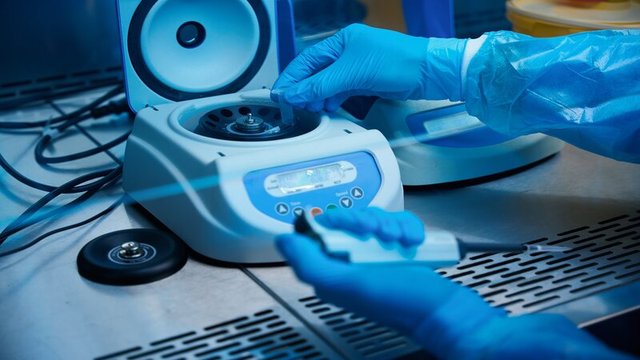
What does an immunologist do?
Feb. 19, 2025

The immune system is our body's natural defence against infections, diseases, and other foreign invaders. Immunologists are experts who study this complex system, working to understand its functions, develop new treatments, and improve public health. But what does an immunologist do daily, and how can you become one?
If you are considering a degree in biotechnology, this field offers exciting career opportunities.
Definition of immunologist
An immunologist is a scientist or medical professional who specialises in understanding the immune system. Their work can be broadly divided into three categories:
- Medical Immunologists – These professionals work in hospitals, clinics, and research institutions, diagnosing and treating immune-related disorders such as allergies, autoimmune diseases, and immunodeficiencies. They often collaborate with doctors to develop personalised treatments for patients.
- Research Immunologists – Working in laboratories, research immunologists study the immune system at the cellular and molecular levels. They investigate how it responds to infections, vaccines, and diseases like cancer. Their research contributes to developing new drugs, vaccines, and therapies.
- Clinical Immunologists – These professionals bridge the gap between research and patient care, designing clinical trials and testing new treatments. They work to ensure that innovative immune-based therapies are safe and effective.
Regardless of their speciality, immunologists play a crucial role in modern medicine, helping to combat infectious diseases, improve vaccine efficacy, and develop novel immunotherapies for conditions such as cancer and autoimmune disorders.
How to be an immunologist
If you are passionate about science and medicine, you might be wondering how to be an immunologist. The path typically involves the following steps:
- Earn a bachelor's degree – A strong foundation in biology, biotechnology, or a related field is essential. A degree in biotechnology in Valencia at Universidad Europea or at our campus in Madrid is an excellent starting point.
- Pursue a master's degree – A master's in biotechnology such as the Master en Biotecnología de la Salud (100% in Spanish) is highly recommended for those who wish to specialise in immunology. This advanced programme provides in-depth knowledge of molecular biology, genetics, and immunological techniques.
- Gain Practical Experience – Hands-on experience in laboratories, internships, and research projects will help you build the necessary technical skills. If you choose Universidad Europea, you will have ample opportunity to collaborate on cutting-edge research in immunology.
- Stay Updated and Specialise – Immunology is a rapidly evolving field, so continuous learning is essential. Specialising in areas such as vaccine development, immunotherapy, or autoimmune diseases can enhance career prospects.
Why study a degree in Biotechnology at Universidad Europea?
If you are looking for a top-quality programme to advance your career in immunology, Universidad Europea offers a degree in Biotechnology inn Madrid and Valencia designed to equip students with the latest scientific knowledge and practical skills. Here’s why this programme stands out:
- Cutting-Edge Curriculum – The programme covers key aspects of biotechnology, including immunology, molecular biology, bioinformatics, and genetic engineering. This knowledge is crucial for a career in immunology.
- State-of-the-Art Laboratories – Universidad Europea provides modern lab facilities where students can engage in hands-on research, learning advanced immunological techniques from experienced professionals.
- Industry Connections – The university collaborates with leading research centres, hospitals, and biotech companies, providing students with networking opportunities and potential career placements.
- Internship Opportunities – Practical experience is vital in immunology. Universidad Europea offers internships in renowned biotech firms and research institutions, allowing students to apply their skills in real-world settings.
- International Recognition – A degree from Universidad Europea is highly regarded globally, increasing your chances of securing job opportunities in research, healthcare, and the pharmaceutical industry.
How Universidad Europea can help launch your career
Studying at Universidad Europea not only provides you with a strong academic foundation but also opens doors to exciting career opportunities. The university offers career guidance, mentorship, and job placement support to help graduates enter the workforce with confidence.
Whether you aspire to work in medical research, develop new vaccines, or contribute to cutting-edge immunotherapy, this programme can set you on the right path to enjoy one of the many biotechnology careers.
Immunology is a fascinating and vital field that plays a crucial role in global health. If you are wondering what does an immunologist do, the answer is that they conduct groundbreaking research, develop life-saving treatments, and improve patient outcomes.
If you’re considering how to be an immunologist, pursuing a degree in biotechnology is a great step forward. At Universidad Europea, you will gain the knowledge, skills, and industry connections needed to thrive in this exciting field.